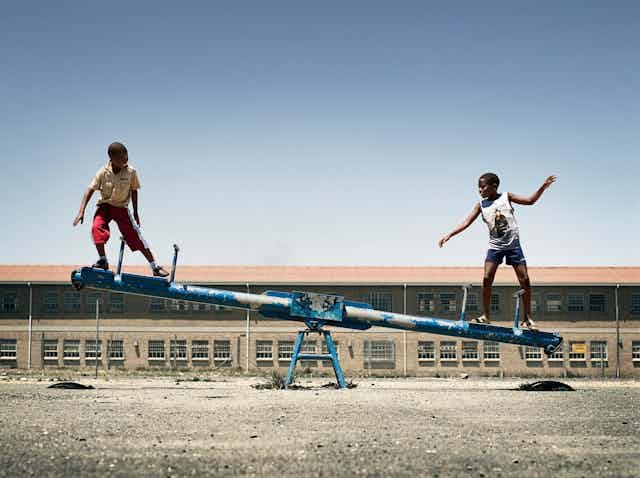A new report has been released that assesses the progress made in the implementation of Africa’s Agenda for Children 2040 (Agenda 2040).
The goal of Agenda 2040, which was adopted in 2016, is to elaborate on aspects of Agenda 2063 relating to children, and accelerate efforts towards the implementation of the African Children’s Charter. Importantly, it aims to restore the dignity of African children, and improve their lives on the continent.
The comprehensive report, produced by the African Committee of Experts on the Rights and Welfare of the Child, identifies progress made, challenges encountered by African governments and set priority areas in the implementation of Agenda 2040. It also exposes emerging challenges and guides future strategies and interventions for the protection and promotion of children’s rights in Africa.
Finally, it sets out the aspirations, indicators, goals and (measurable and less quantifiable) targets aimed at benefiting Africa’s children. The assessment report covers the first phase – 2016 to 2020 –.
The report launch coincides with the 2021 Day of the African Child celebrations. This year’s Day of the African Child is celebrated under the theme “30 years after the adoption of the Charter: Accelerate implementation of Agenda 2040 For an Africa Fit for Children”.
This is an opportunity to look back in order to look ahead.
Agenda 2040 Aspirations
The Agenda 2040 has ten concrete aspirations, and outlines steps that African governments should take to implement to ensure the respect and protection of children’s rights. These aspirations are:
The African Children’s Charter, as supervised by the ACERWC, provides an effective continental framework for advancing children’s rights.
An effective child-friendly national legislative, policy and institutional framework is in place in all Member States.
Every child’s birth and other vital statistics are registered.
Every child survives and has a healthy childhood.
Every child grows up well-nourished and with access to the basic necessities of life.
Every child benefits fully from quality education.
Every child is protected against violence, exploitation, neglect and abuse.
Children benefit from a child-sensitive criminal system.
Every child is free from the impact of armed conflicts and other disasters or emergency situations.
African children’s views matter.
Progress and some good practice
The report notes that, among other things, campaigns, declarations and rallying efforts around particular themes has had a marked effect towards the protection of children’s rights and well-being. For instance, the campaign against harmful cultural practices, in particular child marriage resulted in significant changes in legislation, policies and practice, including the adoption of a General Comment on Ending Child Marriages. Also, the report notes that there is change in public attitudes on issues around child marriage in a progressive pattern.
In addition, there is progress in amplifying the vulnerabilities and protection of children affected by armed conflict, including the adoption of a General Comment on the issue.
Also, there is increased visibility on the girl child in law and policy. For example, the African Child Policy Forum, in partnership with Plan International, has done and continues to do incredible work on Girls and the Law in Africa. Importantly, all these efforts are anchored on the heightened role accorded the girl child in the African Children’s Charter.
Read more: New report ranks how friendly – or not – African governments are towards girls
Next steps
While there is noticeable progress made by some countries, the report notes that the progress is uneven, slow and in some cases stagnant.
For example, many African states fail to prioritise the implementation of Agenda 2040, and ultimately children’s rights. The failure to set aside sufficient resources potentially leads to malnutrition and child hunger, for example.
Also, the report highlights that programmes to alleviate extreme poverty and enhance food security must be the priority for government action in the next monitoring period to reverse the deteriorating situation.
Further, the report notes that there are a range of issues that need to be addressed as a consequence of the effects of the COVID-19 pandemic on children across the continent. These include access to education, health services, and disruptions in family life. Covid-19 has had and continues to have a negative effect on children’s well-being, learning, development and protection.
Another critical issue is the need to build and accelerate efforts to end violence against children, individually and collectively. Violence against children, including in conflict and humanitarian situations, is endemic across the continent. Accordingly, governments and all stakeholders are urged to intensify efforts to end all forms of violence at the regional, national and municipal levels.
Going forward: governments, civil society, children and other stakeholders should play their part in accelerating the implementation of Agenda 2040 - for an Africa fit for children.
Progress has been partially made in the first five years of Agenda 2040, but still there is a long way to go.

